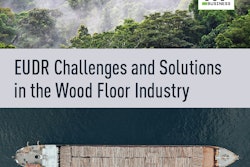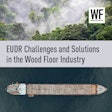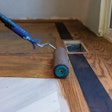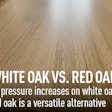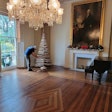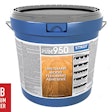I was in Toronto recently working with our team there on various "green" topics. During discussions, one of our reps repeated something one of his big builder customers said, that "I think we should all be building LEED buildings, but I don't think we all need to be building LEED certified buildings." That was a great insight, I thought!
Building along LEED guidelines-selecting smart material, doing smart design based on green aspects and efficiency and so on-that is absolutely something that is smart and right. But sometimes doing the paperwork or paying the fees or micromanaging the regulations isn't always worth the actual certification itself. We absolutely should be building green, but we don't always have to build certified green.
We talked about this idea with other builders during our meetings and they all agreed with the concept. However they noted that buyers are not likely to trust someone who has no history of building green. Buyers are wary of green washing, but the builders thought that if you build a reputation, you get the trust and you don't need to have a third-party stamp (unless there is a clear economic benefit like a tax break). And not having to build under a specific program's rules can often give you more green choices (like using wood that isn't FSC certified).
The desire by buyers to have a third-party stamp is definitely in response to a few bad actors in the market. It can also be because some buyers don't feel qualified to judge a green claim and the third-party stamp reassures. But most of all, I think the trend in "selling fear" has led to something I've talked about before, companies or products being considered guilty until proven innocent.
At Metropolitan, we're in the process of getting most of our line certified for low-emission standards. To achieve this certification, we are not changing the production process at all. The uncertified material we sell this week and the certified product we will sell in a few weeks time is being produced exactly the same way. Both are equally "healthy" and "safe" because that's the type of product we sell, certified or not. But the certified material will be accepted by green building programs and the uncertified material will not be. The bottom line is really that we're spending a great deal of money to prove our innocence.
Maybe this is the world today. We all have so much suspicion and distrust in what anyone tells us, that we just can't believe things without a third party saying, "Yes, it's true." But perhaps if we all do start behaving better, making the smart choices just because they are the right ones to make, we can slowly do better without always being certified to prove it. Maybe some of us will earn enough trust that, when we make a statement that "this product is green," our reputation will be enough to support it. I think that's something to strive for-good behavior and a proven track record should be recognized
So no matter what, if we get credit for it or not, if anyone knows about it or not, we should all be making the right choices every day. "Build LEED" even if you don't certify as LEED. Make a quality floor that is safe and healthy, even if you choose not to pay someone else to confirm it. Go green even if you don't market it. Do right because it's right.

















